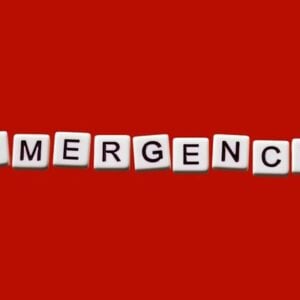The humanitarian crisis in Gaza has reached a critical level as the Israeli government’s ongoing siege has led to widespread starvation. Humanitarian workers themselves are now joining food lines, facing life-threatening risks to feed their families. Aid organizations report that food and essential supplies are completely depleted, and their staff are suffering from hunger and physical deterioration.
Two months after the Israeli-controlled Gaza Humanitarian Foundation began operating, 109 humanitarian organizations have issued an urgent appeal. They are calling on governments to open all land crossings, allow the full flow of food, water, medical supplies, fuel, and shelter materials through a UN-led mechanism, and to end the siege with an immediate ceasefire. Reports indicate near-daily massacres at food distribution points, with the UN confirming that as of July 13, at least 875 Palestinians have been killed while seeking food. Massive displacement continues, with nearly two million Palestinians confined to less than 12 percent of Gaza as of July 20.
Despite large amounts of aid sitting in warehouses both outside and inside Gaza, humanitarian access remains blocked. These restrictions, imposed under the total siege, have caused severe disorder, starvation, and death. The World Food Programme (WFP) has stated that current conditions are making humanitarian operations impossible. Acute malnutrition is rising sharply, particularly among children and the elderly. Disease is spreading, waste is unmanaged, and hunger has forced people to collapse in the streets. Meanwhile, the aid entering Gaza—just 28 trucks per day—is vastly inadequate for the over two million residents in need.
The UN-led humanitarian system is not failing by design but is being actively prevented from functioning. Humanitarian agencies have the resources and readiness to respond but are obstructed by access restrictions. While recent announcements from the EU and Israel suggest plans to scale up aid, there is no substantial improvement on the ground. Every day without consistent humanitarian access results in additional preventable deaths, particularly among children.
The ongoing crisis has left Palestinians in a prolonged state of suffering, both physically and psychologically. The lack of sustained assistance and repeated delays in ceasefire commitments have created a cycle of false hope and despair. The humanitarian system cannot operate effectively under these conditions, nor can aid workers meet needs amid shifting political promises.
The coalition of humanitarian organizations is urging governments to act decisively. This includes calling for an immediate and permanent ceasefire, the lifting of all restrictions, the opening of all crossings, and the restoration of an impartial, UN-led humanitarian response. They also emphasize the need to halt weapons transfers that contribute to the conflict. Symbolic gestures like airdrops or partial aid deals are inadequate and cannot substitute for comprehensive legal and moral responsibilities. Immediate action is essential to prevent further loss of life.






